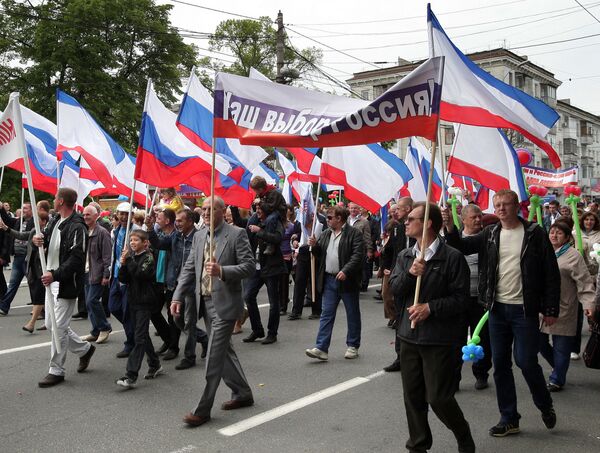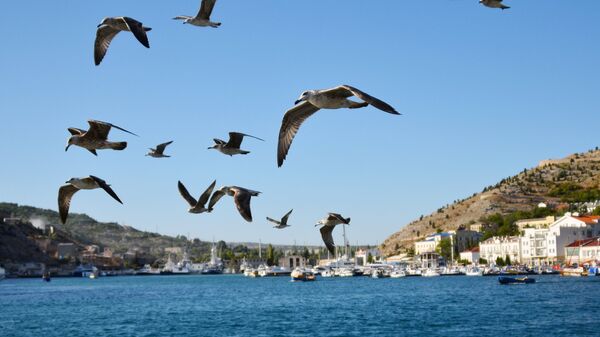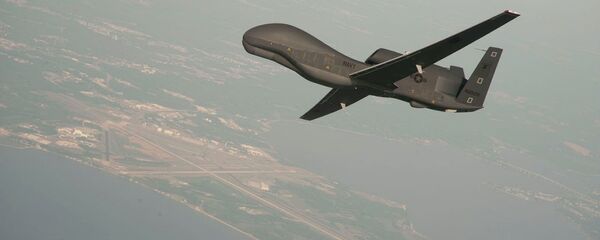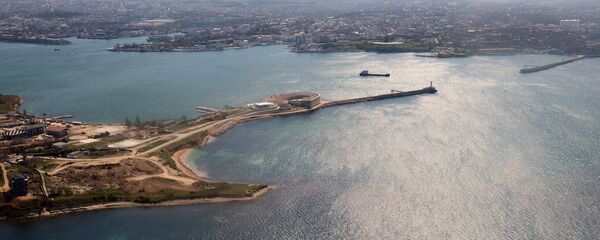He said that the United States cannot change its current position with respect to Crimea because it seeks to save face.
The measures that have already been taken against Russia won't serve to alter US opinion on the matter, according to Fabry.
"The West's politicians have to support pro-Western Ukraine; for its government's possible collapse will mean these politicians' defeat. One cannot but notice that many of them would like to change their stand but they don't have enough courage to do so," he said.
When asked whether there is a way out of the situation, especially with the help of international arbitration, Fabry remained skeptical about the option.
"I do not think that international arbitration will help resolve the problem. The parties will be unable to agree on the authority of the arbitration body on the territorial sovereignty-related issues," he said.
"I think that the West's attitude to Crimea will not change fundamentally after the US elections. Washington has invested too much in its relations with Ukraine, and many in the US are pleased with such confrontation between their country and Russia," he said.
Fabry suggested that in the next few years "the US and its allies will stick to their own version of international law, namely, saying yes to Kosovo, while saying no to Crimea."
During the March 2014 referendum, more than 96 percent of the Crimean electorate voted in favor of seceding from Ukraine and joining Russia.

The post-Maidan coup government of Kiev and its Western supporters refused to recognize the results of the referendum, accusing Moscow of invading and annexing the former Ukrainian region.
Kiev continues to consider Crimea a "temporarily occupied territory," a stance that is supported by a number of Western countries. Moscow, in turn, insists that Crimea's reunification with Russia took place in full accordance with international law.
Following the February 2014 coup, one of Kiev's first moves was to attempt to ban the Russian language, despite regions of Ukraine having been permitted to independently adopt it as an official second language under the deposed administration.
The peninsula was part of Russia until Nikita Khrushchev transferred control of the region to the Ukrainian Soviet Socialist Republic in 1954, less than a year after becoming leader of the Soviet Union.





